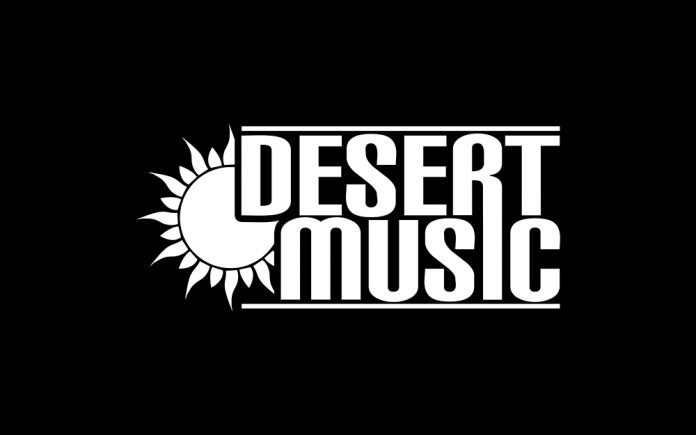
Roundtable with Rose Mallett, Tiptoe Stallone, Barry Minniefield, Gina Carey, Al Ro$$i and Dozzi Dozz
By Noe Gutierrez
Juneteenth has been observed for over 150 years and represents the oldest nationally celebrated commemoration of the ending of slavery in the United States. On June 19, 1865, the Union soldiers, led by Major General Gordon Granger, landed at Galveston, Texas with news that the war had ended and that the enslaved were now free. In this moment we continue to call for racial justice and the Juneteenth 2020 observance embodies an even more significant purpose in guiding us towards equality and equity.
Since the death of George Floyd on May 25, 2020, the world has had to confront itself with the reminder that we are not where we need to be and have much work to do to narrow the racial divide between members of our global community. What happened to Mr. Floyd and countless others is not a peripheral occurrence. There was and is a rightful brewing of resentment towards law enforcement and the status quo of the social order in our black community. In accepting accountability, we must stand together and support the human rights movement that is Black Lives Matter.
Coachella Valley Weekly asked some of our most admired African-American artists to take part in a roundtable discussion via Zoom. We spoke with Barry Minniefield from NBC’s The Voice, CV Hip-Hop and Rap key players Tiptoe Stallone, Dozzi Dozz, Al Rossi, singer, songwriter, film producer and director Gina Carey and Jazz great Rose Mallett.
Below is our conversation:
CVW: Please share your thoughts about Juneteenth.
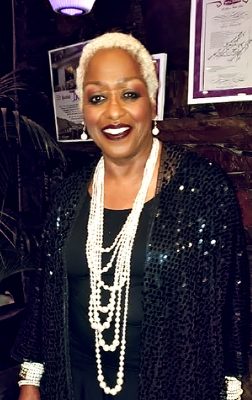
Mallett: “It actually started two and a half years prior to Juneteenth where the slaves were freed. It took that long before all slaves found out they were free. It’s quite significant in that regard because I don’t know how many people recognize that. I think people overall think Juneteenth is the general day of freedom, but no, that was two and a half years later than the actual signing.”
Minniefield: “I think all of us of color, and especially young people, should all know all of that and a lot of us don’t. I’ll be honest, I didn’t pay attention like I should have. I’ve been paying attention the last three and a half years of all the politics and everything else.”
Carey: “I learned a little more about it because I was raised in Inglewood and Central Los Angeles. They had more events that celebrated Black History and talked about it more within our community so it’s been something that has been a part of my life since I was a child; the coming together to have family time, barbecues, the acknowledgement, and of course there would be parades going on in LA. It’s always something that’s been recognized as I grew up. What I did notice here in the desert is that it’s not as prevalent in the community where I live. I’ve lived in the desert for quite some time and now I’m in Palm Springs. I notice that it’s not as recognized in the community.”
Mallett: “I don’t know how concentrated the black population is in the Coachella Valley that it would be a concentrated effort, not that it couldn’t be done. The way California itself is set up, we’re so sparse. I don’t mind that we have concentrated neighborhoods of just all Blacks or just Latinos or all just Whites. We’re kinda spread out, maybe that’s why.”
Minniefield: “I’m from Indiana, so I didn’t know anything. Especially where I was raised. We were the first black family where we lived. They didn’t teach that so I didn’t know.”
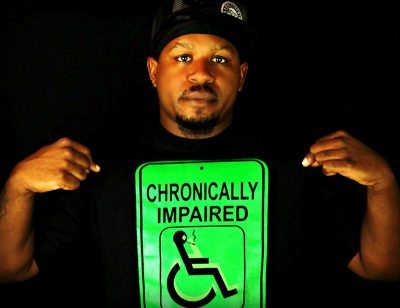
Tiptoe: “I’m just glad we got something to celebrate, that’s good enough for me. To shed light on a lot of the stuff we’re responsible for. We created a lot in this country. We’re responsible for a lot of the cultures that produced the most monetary value; Hip-Hop, Jazz, R&B, Reggae, Rock and Roll and that’s just music. We all know we go beyond that. Juneteenth celebrates all that. Without that day we probably wouldn’t have been able to make that impact we made thus far.”
CVW: What can African-American artists do to impact the movement positively while addressing the failures of the past?
Mallett: “For me, I did a tribute to Mr. Floyd on my home serenade. What I try to do is live by example. This is the deal, you can’t convert me and I don’t want to try to convert you. Because you already have made up your mind what you want to do or how to follow. I have one friend, she is a staunch Trump supporter, now we’ve talked about it and she’s Black like me. I just have to respect her space, I can’t call her any negative names. We just decided to respectfully agree to disagree, other than that all you can do is live by example. So if you are living a life that exemplifies what you feel as being of good character, in addition to what you believe in, that, in a sense, is the most organic thing I can think of doing. I try to be good.”
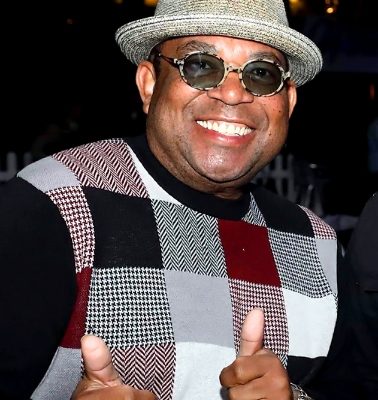
Minniefield: “The best thing for us, we have to get the word out to the young people to vote. People of color are not voting. We have to vote. I hope every person of color would get out and vote. We could make a difference. You can complain about this and complain about that but the main thing is you gotta get out and vote.”
Tiptoe: “Some of us probably don’t follow each other on social media, but I’m a wisecracker on Facebook, I don’t really use it as a tool to socially attack a lot of stuff. I like to clown a lot on my page. I’m kind of known for that and voicing my opinion in that way, but I think that, what are we gonna do voting wise, how is it going to stop all the police killing and all of that? I usually address stuff like this. Even when I went to the George Floyd vigil in Indio that we had, I went to support. Shouts out to anybody in whatever movement they got going on for whatever it is or the cause. They had voting booths there and I’m hearing ‘vote’ and all that, but how is who you vote for going to stop the violence. If we vote in the person you want tomorrow how is that going to stop the police from killing Al Rossi on his way home from work late one night, how is that going to stop that?”
Mallett: “A lot of people think that if you vote just on the level of presidency, that that’s going to be the miracle answer. It is not. It’s a problem if you are not voting on a local, state and national level. The president can’t do anything without support as you can well see. Congress and the Senate, he has support on one side but not the other, so it is up to you. Do you know how many people only vote for the president? That’s not all you have to do. You have to vote in our representatives, if he or she’s not doing what you want you vote his butt or her butt out. I think ultimately things can change but we’re not focusing on a local level, thereby when we vote for our police chief we demand certain changes be made, we demand that police officers be prosecuted, those are bills to be voted upon. If he commits a crime, he’s still going to get his pension, so you make sure you hurt him in the pocket. Those are the bills that we have to make sure that our representatives bring to the table to make change otherwise you’re right, nothing will change on the ground level. As citizens we are responsible for voting the person into local office who will do our bidding for us and if they don’t, you vote them out. If we didn’t vote locally then we are a part of the problem. We can’t say what are they supposed to do, no, what are we going to do?”
Tiptoe: “The last time they had local elections I voted. Since then I’ve seen several murders on camera. My own childhood friend was killed July 4 a few years back in broad daylight. I’m a little more biased because I have a surreal reality of the stuff we face out here just being black men.”
CVW: What can the public do to keep the movement moving in a positive direction?
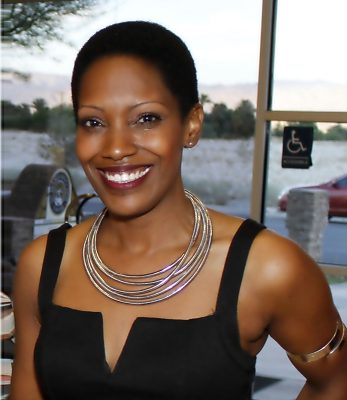
Carey: “This is what concerns me is what I’ve noticed is you cannot create change when things become a trend. I hope that this particular movement is not a trend. It seems it’s almost in style now. We have been Black people all of our life. You move through life a whole different way in what we experience in our daily lives, it’s not a trend. The only way that there will be a change is through consistency. We see someone of color killed and then everybody says, ‘let’s march, let’s talk about Black Lives Matter’ and then it dies down. If you take a refrigerator and you lock it up and put a chain on there and you have a group of people in that house and they’re hungry they’re gonna continue to do whatever they need to do to break that chain. It’s a danger for things to become trendy because it dies down then everything happens again because there’s nobody trying to get into that refrigerator and break it open. You remember Treyvon Martin, everybody rose up, then it died down, something else happens then it calms down, there’s no consistency. Even as a Black filmmaker out here, I have been told things from media like ‘we don’t feel as though doing a particular story of a great achievement of yours was something the readers in our community want to read about’. This is what we experience every day, it’s not a trend. This is real life that we’re living. When everything dies down and goes home I’m still Black. I’m still pushing and trying to do this. Getting push-backed, profiled and pulled over by the police, I went into a big department store out here, was watched was accused of taking something, I’ve been through it all.”
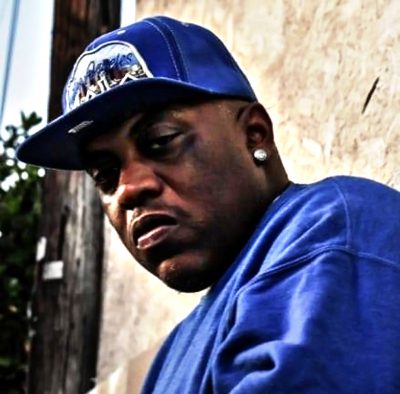
Dozzi: “I’ve had discussions with other people about voting and a lot of things happen because a lot of people don’t vote. We didn’t look over the candidates and see who’s best for these positions. Will it stop brutality? Hell no! Voting, doin’ your homework, making some dialogue with these people and making sure it’s the right person. Things will only work if we come together. I’ve seen a lot of things happen in our community. Both sides of the road, if people come together things will happen. I talked to my dad, he is so hurt right now. I’ve seen my dad cry over George Floyd.”
Rossi: “I think it hit a little harder this time. Overseas really putting up numbers for this and what happened.”
Minniefield: “It’s not just Black folks. It’s every denomination of color marching now, that’s why it’s different. Black, White, Mexican, Chinese, everybody’s out there and it’s because everybody is tired of this. It’s been going on for 400 years, we’ve been oppressed, it’s time to stop!”
Carey: “When I saw caucasian people out there rallying it tore me up. I could not contain myself.”
Dozzi: “This generation of kids. Hip-Hop, Blues and R&B we run the world. White kids, Mexican kids, this is what they’re listening to. We have a great opportunity to make change.”
CVW: The visual of seeing George Floyd killed is horrific. That fact also brought to light the injustices that have been carried out for a very long time. What are your feelings on the tangible part of all of this?
Mallett: “The last two murders of Ahmaud Arbery and George Floyd were televised so you could see it, you could not deny it. It wasn’t somebody telling you about somebody. That was the difference.”
Minniefield: “As far as the number of people being killed, it’s no difference because it’s being taped, but if it wasn’t being taped it’s going to be the same amount of people.”
Carey: “For a long time we’ve not been heard and when you’re violated a lot of people who are non-Black are starting to hear it. They’re being proactive. People are seeing it with their own eyes. It’s not just that one bad cop. People are waking up. You don’t have to have been raped in order to have empathy to understand that this person is in pain and hurting and to want to provide justice for the person. Don’t tell me that this is the past. I’m telling you of an experience I had, I’m telling you what it is so believe what I’m saying. And when I’m telling you I’m not saying you are racist, I’m telling you as a Black woman this is my experience and what I’m going through. And if you love me, fight for me.”
Dozzi: “I believe they weren’t listening. We had Malcom X and Martin Luther King, Jr. They didn’t see it and people in their homes didn’t believe that it was there. But it’s there to us because we deal with it on a day-to-day basis. But now when we see a tape of a man getting choked for 8 minutes and 46 seconds it really hit home.”
Mallett: “The devastating thing about it is, you know the old saying, ‘if you see a roach, you can bet there’s 100 roaches in the wall’. What you saw was just a tip of some things that have happened.”
CVW: What more does law enforcement have to do to be a part of the solution?
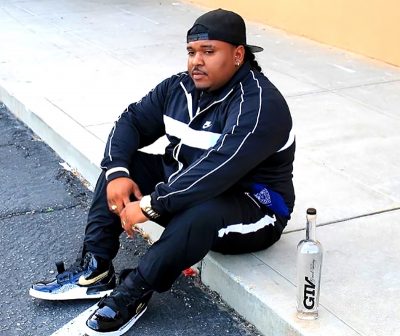
Rossi: “Stop trying to kill us right on the spot. Apprehend us like you apprehend your own kind. That’s the first step. There’s other ways to handle somebody than straight up killing them. I get pulled over somewhat frequently and it’s straight to their pistol. I don’t believe in the defunding of police, go through your officers and pick out the ones with inflated egos.”
Minniefield: “The defunding of police departments is not about getting rid of the police they just need to organize it. If they got somebody with mental health problems out there, the cops got too much going on, so if they send somebody that deals with people with mental health instead of sending a cop and they get shot and killed it’s better to send the person who knows how to deal with those people. That’s what defunding is. It’s not about stopping it, but Trump is trying to make everybody think that’s the case.”
Millett: “Why are we shooting to kill, why don’t we shoot to wound?”
Carey: “When you murder someone you should get the same consequences of anybody else that murders someone. I believe hatred is a spirit and it’s gonna jump from one person to the next so you can’t kill hate. What you can do is make the consequences the same for everyone.”
Tiptoe: “How about a monthly review of the police. What they’re doing, how many unnecessary pull overs and police reports. We have to police the police a little bit.”
CVW: How do you feel about the overwhelming and growing support for Black Lives Matter and, in general, for people who are Black? What more can non-Blacks do?
Minniefield: “What they’re doing now, they’re supporting us. I have never seen so many people, a lot of my friends now are aware, they never said it before.”
Tiptoe: “Even just the ones who are supporting just because it’s about right and wrong. Standing up for what’s right and what happened, recognizing that was a fucked up thing that happened. I don’t want people to do it just because it’s cool to do it right now. I want people to organically be who they are. If you’re already rockin’ with people keep rockin with people. Don’t grip on a little more tight. Don’t invite Rossi, Tiptoe and Dozzi over for dinner just because this stuff is going on and then in six months they going to act like they didn’t see us at Walmart. Don’t feel sorry for me.”
Minniefield: “We gotta be aware of the fakers, especially in corporate America, they are fake as hell. A lot of them do really mean what they say, but a lot of them are doing it because it gets into their pocket.”
Carey: “Things that can help are creating opportunities for people of color. There are things that people with more privilege can do to help us where there are limited opportunities. Stop looking at people of color as though we’re lions. When you see a lion you immediately become fearful. We are human beings, we’re not animals, we’re not out to get you, I’m not out to steal your purse. It starts at acknowledging we are human just like you. Continue to be consistent, listen and be a support system.”
CVW: How do you feel about public monuments around the world linked to slavery and racism being torn down?
Tiptoe: “Why did they leave them up so long anyway?”
Mallett: “It’s a band-aid. It’s trendy and fashionable, it doesn’t solve the problem”
Dozzi: “To me it’s all a game. It’s funny to me. When Colin Kaepernick was kneeling it was a problem and now they understand why he was kneeling. We’re not building a rocket.”
CVW: What are some ideas you have been thinking about in moving forward and creating hope?
Tiptoe: “I’ve been talking valiantly with other people in the community like Waymond Fermon about bringing back the Black Student Union, not just for Black students but a spot where people are interested can learn about the culture and we can also get the young black kids in there and set up little programs like study hall and showing them the importance of voting and instilling that in them at a young age. And I’m thinking 3rd and 4th grade not just high school. I think we should have a non-profit valley-wide Black Student Union. We can get sports and scholarships out of it”.
Carey: “It’s great for us to have opportunity and at this time we need to have a platform where there are people of different races who can sit down at a town hall meeting and talk. We need to be able to talk and share our experiences where people can have a conversation. Keeping things segregated continues to keep us separated. We need to create an environment where we can come together and learn how to love one another. We want to be included just like everyone else. If we separate from each other we can’t learn from each other. We need to come together. We need to create an environment to come together. If you have a white privilege or have a certain type of privilege that you know you have, where you have a position open up the door for them, maybe they can’t get in by themselves. Maybe your privilege might be the one to get them in the door. If you turn a blind eye then you’re still not helping the cause. We know things will go back and die down how do we heal? I’m about resolution. You’re not gonna win everybody, but there are some you will win.”
Dozzi: “A lot of it has to start with us. We have to start loving each other first and spreading love, so when we get together we don’t start feeling a certain way. Like my pops said the other day, city council has meetings almost every night, you got 15 minutes of fame, go in there and say what you gotta say.”
CVW: On behalf of the CV Weekly team, I want to thank all of you for your art, what you have done for this area, and for being a significant part of the desert’s mosaic of people. CV Weekly will continue to support all you do and we love you. Do you have any final words
Tiptoe: “Better days are going to come up. We have to keep striving. Love your family and yourself for sure. We have to do our part whatever our part is. Take a role in your community, take your role in the movement, start your own movement within the movement because at the end of the day it’s all for the same cause. More minds together are way more brilliant than one. We’ll figure it out. Keep your head up.”
Minniefield: “A change is gonna come. We see the news every day. It feels different this time and I’m so glad that my 83 year old father is still alive to see this change happen. I want to let everyone know, it’s not Black or White it’s the human race, we’re all humans, it’s a human, we all bleed the same color.”
Dozzi: “Let’s stay in contact with each other, build ideas and try to set the tone for love. If others see us doing it then maybe it will catch wind. The time is now no matter what you’re doing. Everyone in the world should be woke. It’s time.”
Carey: “I want to thank Tracy Dietlin and Phil Lacombe at CV Weekly for embracing us as people of color and always being a support system. Love is key. Everything that you see in this world is because of hate. Love is the key to change. It’s going to start with one person at a time. When you begin to love you will help your neighbor.”
Mallett: “Growing up in Chicago in an all-black neighborhood, that’s all I knew. I didn’t know beyond that neighborhood. I never thought in a million years at this time in my life the people around me would be so diverse in terms of people who I care about and care about me. Things are changing but at such a slow pace. But things are changing. In another 50 years, when our children and their children start blending you won’t be able to tell who’s who. That’s what a certain group of people are afraid of, of becoming the minority. You be the example. People are looking at you, how do you talk? How do you carry yourself? Who are you associating with? You are being watched. Children are watching you. What words do you use? Do you use them to elevate or do you use them to push people down? Realize this too, corruption will never be eradicated. Killing will never be eradicated, maybe minimized. You just have to take care of your small part of the world you live in and hope that something that you say or do or something that you characterize will elevate the man standing next to you.
John Carey (vocalist/guitarist)
Juneteenth is the oldest nationally celebrated commemoration of the ending of slavery in the United States. What are your thoughts about the day?
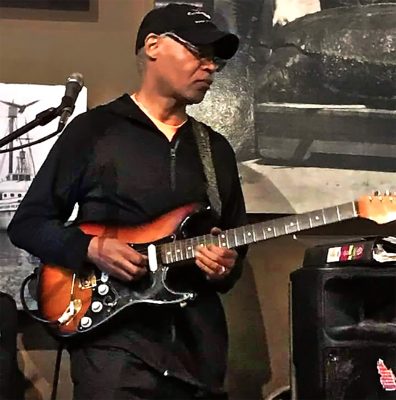
John Carey: “Even though I’m very appreciative and how we have progressed from the day of freedom, I still have to look back and say America really didn’t fix the problem. Yes, we put a band-aid on it to pacify the people at that time but only to appease those who were not in favor.
We are still fighting for Juneteenth here in 2020.”
What can African-American artists do to impact the (BLM) movement positively while addressing the failures of our past?
John Carey: “As a musician, I’m a songwriter and my main job and focus is to address issues that we face everyday. I write freedom songs, songs of protest, songs of brotherhood and songs of peace. We are the messengers for change and equality.”
Do you have any personal stories you’d like to share with regard to law enforcement interaction?
John Carey: “Growing up black in Chicago, I was given the talk from my mother on how not to get killed by a police officer. At 13 I was picking up my cousin from the bus stop and pulled over by a police officer with his gun out saying I had robbed a laundry cleaner. Frightened and confused they put us in the car and took us to the cleaners and the lady said it wasn’t us. As a 25 year-old I had moved to the North side of Chicago in a mixed neighborhood where I was stopped by 8 or 10 police cars after I had just finished playing basketball. They said I had just raped at 75 year-old white lady in some high rise apartment. I had never been so scared in my life, but they took me to the lady’s apartment and she took one look at me and said it wasn’t me. We have a problem because we are at a disadvantage. Blacks weren’t supposed to be police officers. It was always about keeping blacks in line through scare tactics.”
What change(s) would you like to see start taking place to address racism?
John Carey: “I think there’s still a lot of people in denial because it’s not happening to them. It’s not going to be fixed tomorrow because people are still getting rich with it. It’s better than it was because the younger generation of Blacks, Whites, and Latinos are tired of it.”
What are some things we can all do to be a part of the solution?
John Carey: “We can all look at it the same way we look at saving the whales, or saving a kid from a foreign country or fixing the pandemic. We know what to do, but we still have so many that don’t want to do it.”
What are our next steps to unity?
John Carey: “You can no longer just dance to the music. You have to also understand the words to the song.”
(taken from my song ‘Love, Peace and Understanding’)
John Carey: https://www.youtube.com/channel/UCH4xq7FzSqOcy_pxcjcRFZw
https://itsmyurls.com/tiptoestallone
Al Ro$$i: https://www.youtube.com/channel/UCSHWyBFxCqAMCs0n85d0GFA









































